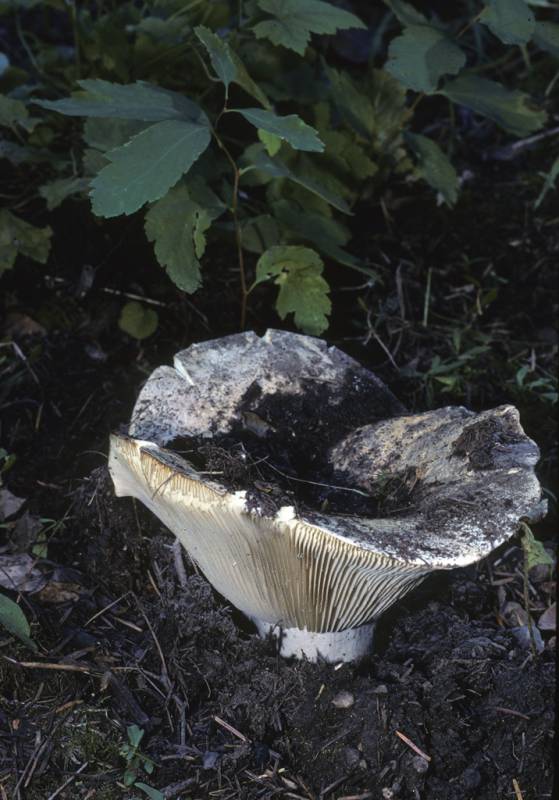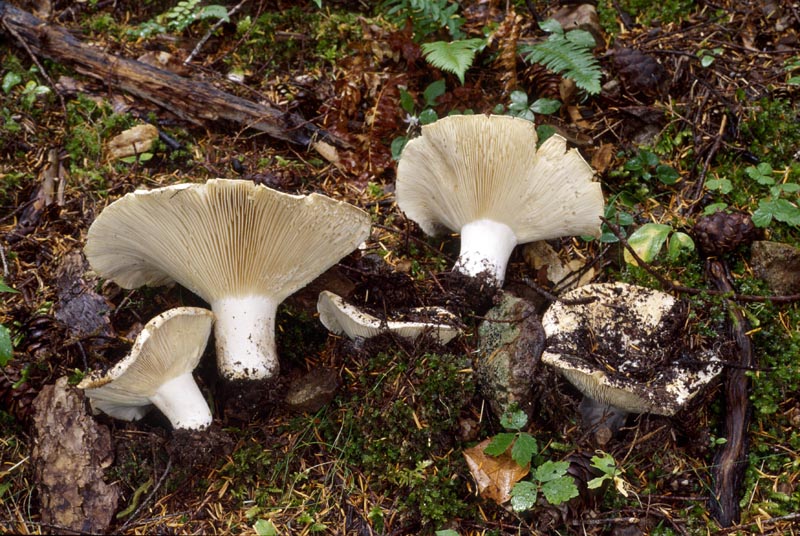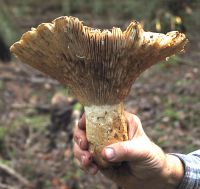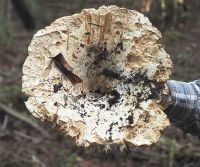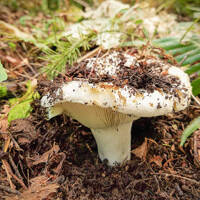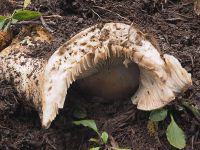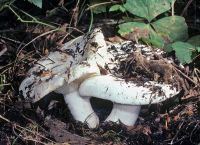Distribution: Broad, common
Conservation Status: Not of concern
As its name suggests, the stipe (-pes, Latin for foot) is rather short (Latin, brevi) compared to the cap diameter, so it often has difficulty getting its cap above the soil surface. Often it is found as “mushrumps,” particularly along the edges of trails and unpaved forest roads. The cap usually is somewhat to markedly vase-shaped, the spores are white, and the taste is mild to variably acrid.
R. cascadensis Shaffer is a supposedly separate species, differentiated by its smaller size, cap with buffy tones, smaller spores, and very acrid taste. However, many collections fall uncomfortably between the two concepts, so it remains to be seen whether there is more than one species here or not. R. brevipes is very similar to R. delica Fries and R. chloroides (Krombholz) Bresadola of Europe, the latter perhaps corresponding to R. brevipes var. acrior Shaffer, which is acrid and has a narrow greenish band around the stipe apex adjacent to the gills.
One of David Arora’s leading candidates for “most boring mushroom.”
PNW Herbaria: Specimen records of Russula brevipes in the Consortium of Pacific Northwest Herbaria database
CalPhotos: Russula brevipes photos

